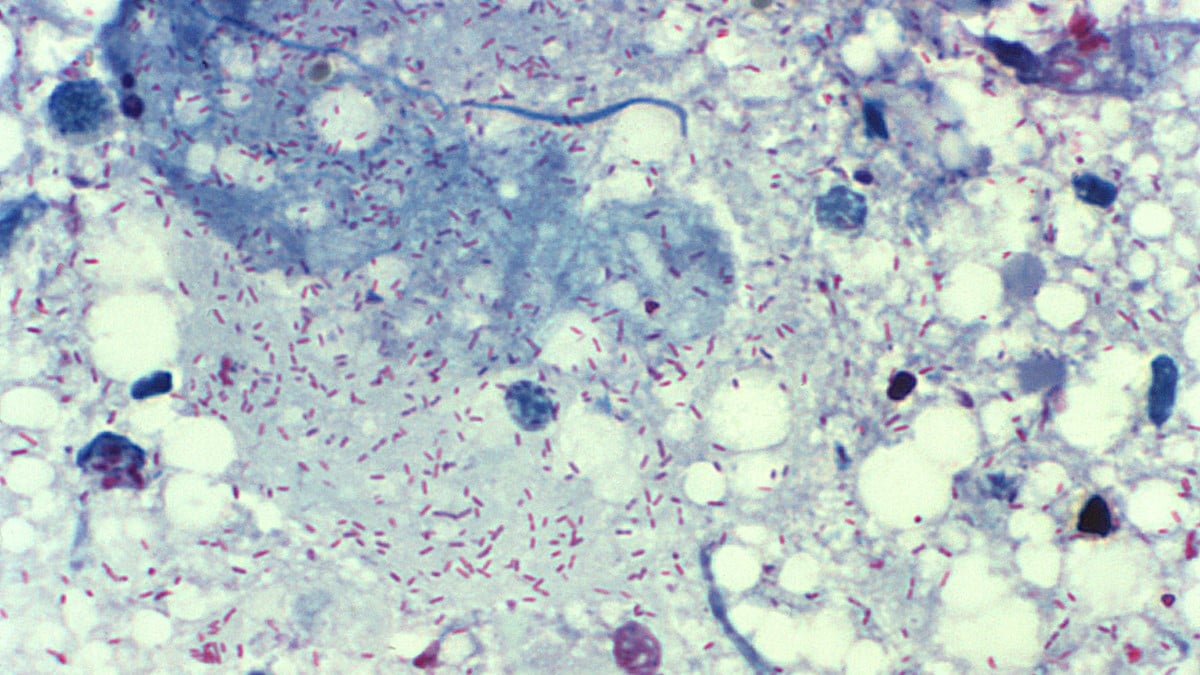What to know
- Contact your state or local health department to facilitate diagnostic testing of blood, serum, eschar swab, or tissue specimens for rickettsial diseases at CDC.
- Health departments can determine if samples should be sent to CDC's Rickettsial Diagnostic Laboratory in the Division of Vector-Borne Diseases for further testing.

About the Rickettsial Diagnostic Laboratory
The Rickettsial Diagnostic Laboratory at CDC serves as an internationally recognized reference laboratory for the diagnosis of rickettsial diseases. Testing is provided free of charge to approved agencies.
Many diagnostic assays for rickettsial diseases are commercially available. Routine testing should be performed, in most cases, by state or commercial laboratories. CDC laboratories are available to assist with complex cases, if specific assays are not available commercially, or for issues of public health significance.
Never delay or withhold treatment
Specimen submission guidelines
You can find test codes for rickettsial samples below. Each test code includes information about appropriate specimen types, storage, and shipping conditions for serological and molecular tests for rickettsial diseases.
Samples should be sent through your state or territorial public health laboratory or with their approval. Final reports of test results from CDC are returned to the state public health laboratory that is responsible for providing these reports to the primary submitter.
Submitters can use two methods for submitting specimens to CDC for testing:
- The CDC Test Order and Reporting (CSTOR) Web Portal (preferred)
- The CDC Specimen Submission Form (CDC 50.34)
Specimens MUST be accompanied by a completed CDC Specimen Submission Form (CDC 50.34).
- A separate form is required for each specimen and for each requested test category (i.e., molecular detection or serology).
- If the test category requested includes more than one organism, select the primary organism under the suspected agent drop-down menu in the top left corner of CDC 50.34 form, and write additional pathogens requested in the Comments section on the bottom right corner of the second page of CDC 50.34 form.
- All requests, once received by CDC, will be reviewed by a clinical consultant in RZB. Additional molecular or serological assays may be included at their discretion, based on the clinical and epidemiological information provided by the submitter.
MINIMUM information required on CDC 50.34 form
Providing complete clinical and epidemiological data is imperative for decisions to test for other rickettsial pathogens that might not have been considered previously.
- Test order name (one per submission form)
- SPHL point of contact including phone number of the person responsible for sample submission and follow-up
- Patient full name, sex, birth date
- Date of onset of signs or symptoms
- Specimen collection date
- Specimen source (e.g., serum, whole blood, swab, tissue, etc.)
- Therapeutic agent and dates (specific antibiotic therapy and initiation date)
- State of illness (e.g., active, recovered, fatal, etc.)
- Brief clinical summary (include signs, symptoms, and any underlying illnesses if known)
Requested additional information if available:
- Previous commercial laboratory results (physical exam findings and pertinent laboratory values)
- Travel history (within 4 weeks of symptom onset), denote with "No" or "Unknown" if no travel occurred or travel history is unknown
- Exposure history (including animals and arthropods)
Shipping information
Samples should be sent directly to the Specimen Triage and Tracking (STATT) lab.
Centers for Disease Control and Prevention
SMB/STAT
ATTN: Rickettsial Diagnostic Laboratory, Rickettsial Zoonoses Branch (unit 78)
1600 Clifton Road, NE
Atlanta, GA 30329-4027
*Packages should be mailed for receipt Tuesday–Friday and should take into consideration U.S. federal holidays. Exceptions can be made for urgent samples with prior approval.
Test codes for rickettsial samples*
Each test code includes sample specifications and packaging guidelines about appropriate specimen types, storage, and shipping conditions for molecular and serological tests for rickettsial diseases. Please read the information carefully.
| Pathogen & Test | Test code |
|---|---|
| Anaplasma Molecular Detection | CDC-10290 |
| Anaplasma Serology | CDC-10292 |
| Coxiella burnetii Molecular Detection | CDC-10304 |
| Coxiella burnetii Serology | CDC-10305 |
| Ehrlichia Molecular Detection | CDC-10499 |
| Ehrlichia Serology | CDC-10311 |
| Orientia Molecular Detection | CDC-10359 |
| Orientia Serology | CDC-10360 |
| Rickettsia Molecular Detection | CDC-10402 |
| Rickettsia Serology Spotted Fever Group (RMSF) Serology | CDC-10403 |
| Rickettsia Serology Typhus Group Serology | CDC-10404 |
*Please review carefully all details regarding acceptable sample types and storage conditions for each test code. Submissions not meeting these requirements can be rejected.
Further assistance
Additional assistance may be obtained from the Rickettsial Diagnostic Laboratory.
- For all diagnostic test questions, please contact: [email protected]
- For all other questions, please contact: [email protected]
